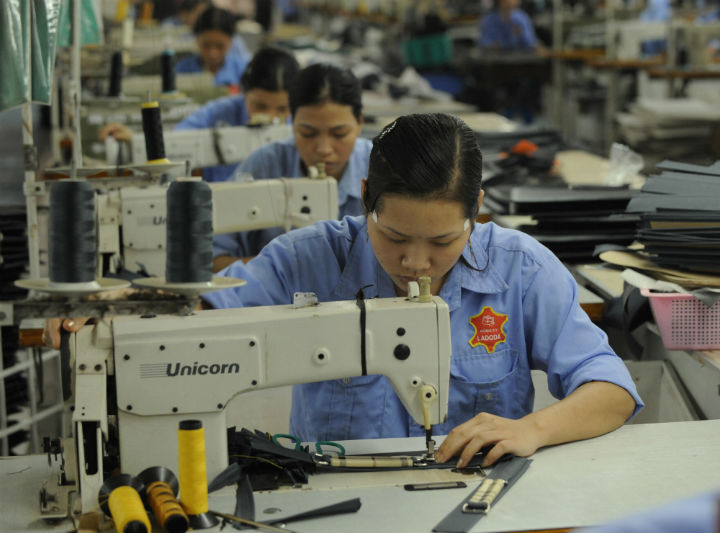VANCOUVER — Signing on to the biggest trade agreement in the world will push member nations with weaker track records on workers’ rights to meet international labour standards. But one expert says we should don’t expect big changes to happen overnight.

“A lot of what people would be hoping for is, over time, countries just beginning to adopt the same kinds of norms that we would have in the wealthier countries,” said Dane Rowlands, director of Carleton University’s Norman Paterson School of International Affairs.
The Canadian government, which reached the agreement with 11 other Pacific Rim countries after marathon negotiations in Atlanta, believes the TPP is “unprecedented for many countries” and the deal will lead those with questionable labour practices to adhere to “some very core obligations and commitments that exist in the ILO (International Labour Organization) treaty.”
READ MORE: What Canadians should know about the TPP deal
And, as a condition of the agreement, there will be a means to hold those member states accountable and to subject governments to dispute settlement, if concerns about workers’ rights emerge.
Under the TPP agreement, members agreed to “adopt and maintain in their laws and practices the fundamental labour rights as recognized in the ILO 1998 Declaration.”
That includes putting an end to forced labour and child labour, allowing workers the right to freedom of association and collective bargaining and to have laws regarding minimum wages, hours of work and ensuring safe and healthy working conditions.
Rowlands questioned how much we can expect of governments in developing countries where there is “very limited enforcement capacity” to crack down on labour violations compared to wealthier member nations.
“You’ve got to wonder the extent to which they are actually prepared to do this or even really understand what the implications are,” he said. “It’s this question of very different standards and norms and behaviour.”
“There’s no way that Vietnam is going to overnight become a paragon of labour rights according to the standards that we have in North America for example.”
Vietnam is one of Canada’s “priority emerging markets” and trade between the two countries “reached an all-time high” last year.
Bilateral trade between the two countries hit $3.3 billion in 2014, with Canada importing more than $2.8 billion in merchandise — including apparel, footwear, furniture and machinery — according to the Dept. of Foreign Affairs, Trade and Development website.
READ MORE: The TPP deal needs to be voted on. What will the Liberals and NDP do?
While Vietnam is not alone among TPP members in having a less than favourable track record, it is among several countries the U.S. Bureau of International Labor Affairs lists as producing garments using “forced or indentured child labour.”
- What is a halal mortgage? How interest-free home financing works in Canada
- Ontario doctors offer solutions to help address shortage of family physicians
- Capital gains changes are ‘really fair,’ Freeland says, as doctors cry foul
- LGBTQ2 rallies will be held across Canada next month. Here’s what to know
And a 2013 briefing paper on Vietnam’s manufacturing sector from the Washington, D.C.-based Worker Rights Consortium also highlighted concerns about gender discrimination, in particular the treatment of pregnant women in the workforce, inadequate wages, workers being required to work hours beyond legal limits and the denial of wages.
Although he said the record on holding trade partners accountable for labour violations has been “a bit mixed,” he said there are a couple of ways in which the labour records of TPP nations may be challenged.
“One would be that the government itself is seeking to have a particular industry targeted or challenged in a foreign country,” he said. ” The other would be that it’s brought to the attention of the authorities by either the industry in Canada, which is being adversely affected, or by labour groups in Canada or human rights groups in Canada which do the investigation and say this is an industry where we have evidence that there is child labour, for example, being used.”
Rowland believes improvements in regards to labour violations will come in the long term.
“There’s room for optimism to think that you’re going to begin to put pressure on these producers in these countries to actually respect labour markets a little bit more, to respect labour unions a little bit more,” he said, adding corporations will be under more pressure to enforce international standards in facilities where their products are being assembled.




Comments